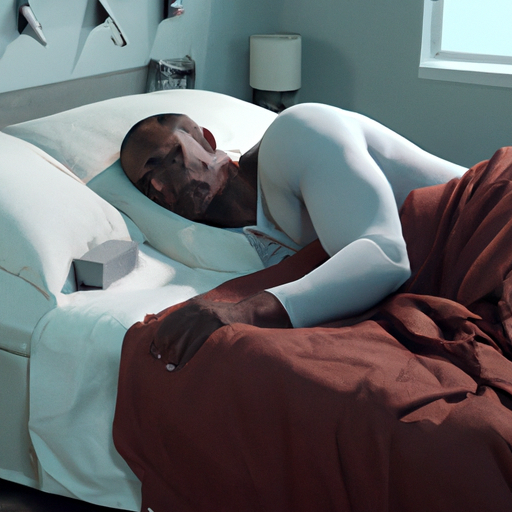Dion Waiters: “Some days, I’d sleep in the bed all day”

Dion Waiters’ Journey to the NBA: Overcoming Challenges and Achieving Success
Dion Waiters, a professional basketball player in the NBA, has had a remarkable journey to success. Born on December 10, 1991, in Philadelphia, Pennsylvania, Waiters faced numerous challenges throughout his life. From a young age, he had to overcome adversity and make difficult choices to pursue his dreams of playing basketball at the highest level.
Growing up in a tough neighborhood, Waiters was exposed to the harsh realities of life. He witnessed violence and crime on a daily basis, which made it challenging for him to stay focused on his goals. However, he found solace in basketball, using it as an escape from the troubles that surrounded him. It became his passion, his driving force.
Despite his talent and love for the game, Waiters faced obstacles that threatened to derail his dreams. One of the biggest challenges he encountered was his academic performance. He struggled in school, often prioritizing basketball over his studies. This led to him being academically ineligible to play during his junior year of high school. It was a wake-up call for Waiters, forcing him to reevaluate his priorities and make a change.
With the support of his family and coaches, Waiters committed himself to improving his academic standing. He worked tirelessly to raise his grades and regain eligibility to play. This experience taught him the importance of discipline and perseverance, qualities that would serve him well in his future endeavors.
After graduating from high school, Waiters faced another hurdle on his path to the NBA. He decided to attend Syracuse University, a renowned basketball program, but found himself coming off the bench during his freshman year. It was a humbling experience for Waiters, who had always been a star player. However, instead of becoming discouraged, he used this setback as motivation to work harder and prove himself.
Waiters’ determination paid off, as he became a key player for Syracuse in his sophomore year. His exceptional performance on the court caught the attention of NBA scouts, and he decided to forgo his remaining college eligibility to enter the NBA draft. In 2012, he was selected as the fourth overall pick by the Cleveland Cavaliers, marking a significant milestone in his career.
Transitioning to the NBA was not without its challenges for Waiters. He had to adjust to the faster pace and higher level of competition. Additionally, he faced criticism and scrutiny from the media and fans. However, Waiters remained resilient, using the same determination and work ethic that had gotten him to this point.
Throughout his NBA career, Waiters has faced ups and downs. He has played for multiple teams, including the Cavaliers, Oklahoma City Thunder, Miami Heat, and Los Angeles Lakers. Injuries have also posed challenges for him, forcing him to miss significant playing time. However, Waiters has always managed to bounce back, showcasing his resilience and determination.
In conclusion, Dion Waiters’ journey to the NBA is a testament to his ability to overcome challenges and achieve success. From his humble beginnings in a tough neighborhood to becoming a professional basketball player, Waiters has shown unwavering determination and a strong work ethic. His story serves as an inspiration to aspiring athletes, reminding them that with hard work and perseverance, anything is possible.
The Impact of Dion Waiters’ Performance on the Miami Heat’s Success

Dion Waiters, a former shooting guard for the Miami Heat, has been known for his inconsistent performance on the court. While he has shown flashes of brilliance, there have been times when his lackluster play has left fans and teammates frustrated. In a recent interview, Waiters opened up about his struggles, revealing that there were days when he would sleep in bed all day.
Waiters’ admission sheds light on the impact his off-court behavior had on his performance. It is no secret that sleep is crucial for athletes, as it allows their bodies to recover and recharge. By choosing to sleep all day, Waiters was depriving himself of the rest he needed to perform at his best. This lack of rest likely contributed to his inconsistent play and inability to meet the expectations set for him.
Furthermore, Waiters’ admission raises questions about his dedication and commitment to the team. Professional athletes are expected to maintain a high level of discipline and focus, both on and off the court. By prioritizing sleep over his responsibilities as a player, Waiters was sending a message that he was not fully invested in the team’s success. This lack of commitment can have a detrimental effect on team chemistry and morale, ultimately impacting the team’s overall performance.
The Miami Heat, as an organization, have always prided themselves on their strong work ethic and dedication to success. They have built a culture that values hard work and accountability, and players who do not meet these standards are often held accountable. Waiters’ admission of sleeping all day not only reflects poorly on him as an individual but also raises questions about the team’s ability to maintain their high standards.
In addition to the impact on team chemistry, Waiters’ inconsistent performance also had a direct effect on the Heat’s success on the court. When Waiters was on his game, he was a valuable asset to the team, providing scoring and playmaking abilities. However, his lack of consistency made it difficult for the team to rely on him night in and night out. This inconsistency created a void in the team’s offense, forcing other players to step up and fill the gap.
The Heat’s success is built on a team-first mentality, where each player understands their role and contributes to the overall success of the team. When one player fails to meet expectations, it puts additional pressure on the rest of the team to compensate. This added pressure can lead to increased stress and a breakdown in team dynamics, ultimately impacting the team’s ability to perform at their best.
In conclusion, Dion Waiters’ admission of sleeping all day highlights the impact his off-court behavior had on his performance and the Miami Heat’s success. By prioritizing sleep over his responsibilities as a player, Waiters not only showed a lack of dedication and commitment but also created a void in the team’s offense. This inconsistency and lack of contribution put additional pressure on the rest of the team, ultimately impacting their ability to succeed. Moving forward, it is crucial for players to understand the importance of maintaining a high level of discipline and focus, both on and off the court, in order to contribute to the team’s success.
Dion Waiters’ Personal Struggles and the Importance of Mental Health in Professional Sports
Dion Waiters, a professional basketball player, recently opened up about his personal struggles with mental health. In a candid interview, he revealed that there were days when he would sleep in bed all day, unable to find the motivation to get up and face the world. Waiters’ story sheds light on the often overlooked issue of mental health in professional sports.
Waiters’ admission is a reminder that athletes, despite their physical prowess and seemingly glamorous lifestyles, are not immune to mental health challenges. The pressures of performing at a high level, dealing with constant scrutiny from fans and media, and the demands of a rigorous schedule can take a toll on even the most resilient individuals. Waiters’ story serves as a powerful reminder that mental health should be a priority for athletes and the sports industry as a whole.
The importance of mental health in professional sports cannot be overstated. Athletes are expected to be strong, both physically and mentally, but the reality is that they are human beings with emotions and vulnerabilities. Ignoring or downplaying mental health issues can have serious consequences, not only for the athletes themselves but also for their teams and the sport as a whole.
Fortunately, there has been a growing recognition of the importance of mental health in professional sports in recent years. Many sports organizations have implemented programs and resources to support their athletes’ mental well-being. These initiatives include access to mental health professionals, counseling services, and educational programs to raise awareness about mental health issues.
However, there is still much work to be done. The stigma surrounding mental health remains a significant barrier for athletes seeking help. Many fear that admitting to struggling with mental health issues will be seen as a sign of weakness or that it will negatively impact their careers. This fear often leads to athletes suffering in silence, which can exacerbate their mental health problems and hinder their performance on the field or court.
It is crucial for athletes, coaches, and sports organizations to create an environment where mental health is openly discussed and prioritized. This means fostering a culture of support and understanding, where athletes feel comfortable seeking help without fear of judgment or repercussions. It also means providing adequate resources and support systems to ensure that athletes have access to the help they need.
The benefits of addressing mental health in professional sports are far-reaching. Not only does it improve the well-being and performance of individual athletes, but it also sets a positive example for fans and the wider community. By openly discussing mental health and seeking help when needed, athletes can inspire others to do the same, breaking down the stigma and creating a more compassionate and understanding society.
In conclusion, Dion Waiters’ story serves as a powerful reminder of the importance of mental health in professional sports. Athletes, despite their physical prowess, are not immune to mental health challenges. It is crucial for the sports industry to prioritize mental well-being, providing athletes with the support and resources they need. By doing so, we can create a culture where mental health is openly discussed and where athletes feel comfortable seeking help. This not only benefits the individual athletes but also sets a positive example for fans and the wider community.

